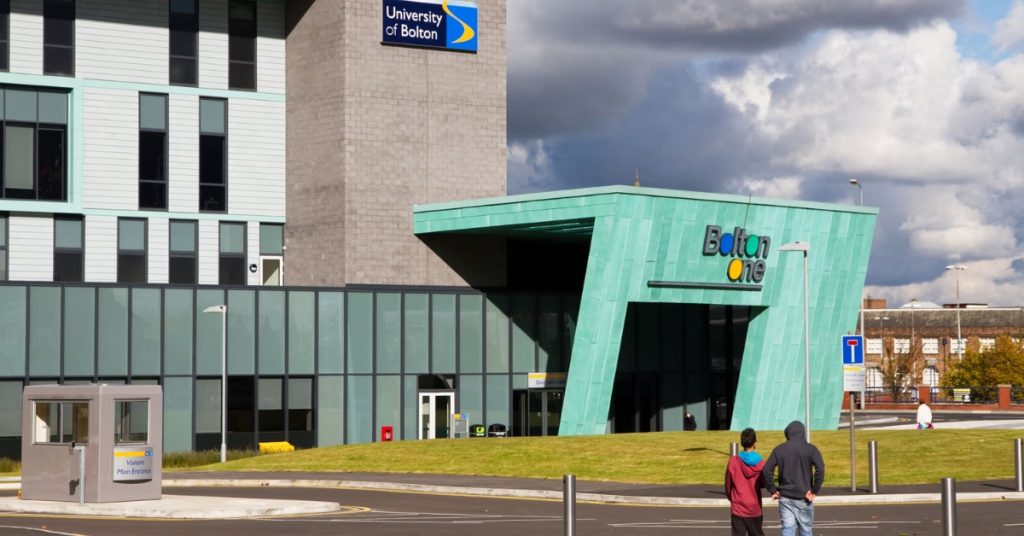
A heated legal conflict has erupted among universities in the north-west of England over Bolton’s attempt to rebrand itself as the University of Greater Manchester, despite strong objections from its regional counterparts.
Bolton’s vice-chancellor has accused three other universities in the area – including the University of Manchester and Manchester Metropolitan University, two of the UK’s largest institutions – of forming a “cartel”.
Last year, the University of Bolton applied to England’s higher education regulator, the Office for Students (OfS), to be registered as the University of Greater Manchester. Bolton argues that its widespread campuses and student base across the region make the new title more appropriate.
However, the universities of Manchester, Manchester Metropolitan, and Salford have opposed the move, claiming the new name would cause “significant confusion” among students and the public.
These universities have collectively lodged over 100 legal challenges against Bolton’s use of Greater Manchester trademarks, such as Greater Manchester Business School, through the OfS’s consultation process.
In a letter obtained by the Guardian, Prof George Holmes, Bolton’s vice-chancellor, indicated plans to counteract by appealing to the UK’s Competition and Markets Authority (CMA).
In the letter to Susan Lapworth, the OfS chief executive, Holmes expressed concern about “unlawful anti-competitive behavior by a small but powerful collective of Manchester-based higher education institutions.”
Holmes stated: “It appears that we are witnessing a cartel in action among these three universities against our proposed name change, and it seems that at least one of these institutions is leveraging its dominant market position to stifle competition.”
Last year, Bolton had 8,730 full-time students and an annual income of £136m, while the University of Manchester had 42,000 full-time students and an income of £1.3bn, and Manchester Met had 31,600 full-time students and a £422m income.
A Bolton spokesperson declined to comment on confidential communications with the regulator or on the trademark legal actions but confirmed that the university’s governing body would meet next month to consider further actions, including contacting the CMA.
A University of Manchester spokesperson stated: “We responded to the formal OfS consultation regarding the proposed name change and registered our concerns. We believe the proposed name change will be very misleading and confusing.”
Manchester Met echoed these concerns, stating: “We have submitted our views on the proposed name change to the OfS and have objected to trademark applications from the University of Bolton where they conflict with our registered trademarks.”
The University of Salford added: “We have submitted our views on the proposed name change to the OfS and responded to several trademark applications and registrations by the University of Bolton.”
Bolton’s pro-vice-chancellor, Greg Walker, argued in favor of the name change, citing the university’s significant evolution over the past 20 years and its expansion into Manchester and Salford. Walker noted that 70% of Bolton’s UK students hail from the Greater Manchester region, while only 20% reside in Bolton.
“The current and misleading provincial university name hampers our efforts to enhance graduate employment,” Walker said.
In an interview with the Guardian last year, Holmes mentioned that the Greater Manchester name proposal stemmed from student feedback, who felt that Bolton was not well-recognized within the UK or internationally.
“We still get asked, ‘Is there a university in Bolton?’ Even now, we still face that skepticism. It genuinely impacts our graduate outcomes,” Holmes said.
Comments (0)